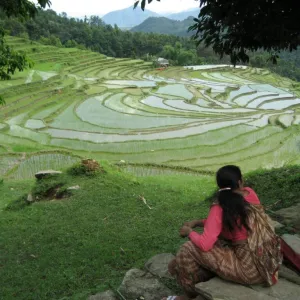Saving seeds, securing staples: How women are leading seed security in Nepal
By Danica Louise C. Sembrano In Nepal, where agriculture supports more than half of the population, having sustainable access to quality and well-adapted seeds before the cropping season begins can make a difference. Research shows that quality seeds alone can lead to a 20-30% increase in yields (Devkota and Shrestha, 2020). Yet for maize and wheat farming households in the

Saving seeds, securing staples: How women are leading seed security in Nepal
By Danica Louise C. Sembrano
In Nepal, where agriculture supports more than half of the population, having sustainable access to quality and well-adapted seeds before the cropping season begins can make a difference. Research shows that quality seeds alone can lead to a 20-30% increase in yields (Devkota and Shrestha, 2020). Yet for maize and wheat farming households in the mountainous regions, this remains a recurring challenge despite interventions to improve seed security.
Wheat and maize, next to rice, are among Nepal’s most staple crops. A recent study surveyed 250 households in Mandan Deupur and Panchpokhari Thangpal municipalities in Bagmati Province to find out how gender, ethnicity, socioeconomic status, and exposure to shocks affect household seed security. Under the lens of the FAO seed security framework, it revealed new insights on how these factors affect availability, accessibility, varietal suitability, and quality.

